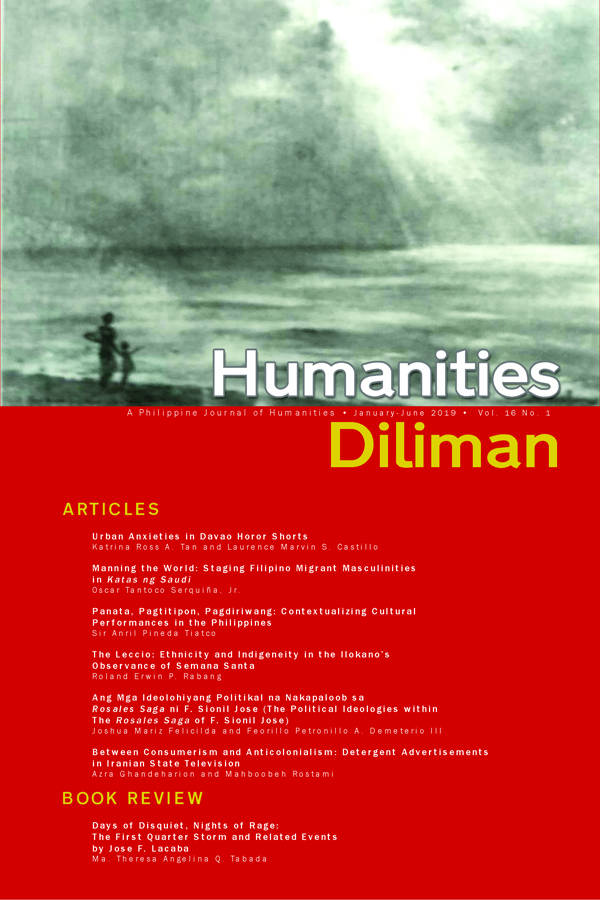Panata, Pagtitipon, Pagdiriwang: A Preliminary Contextualization of Cultural Performances in the Philippines
Abstract
Cultural performance f irst appeared in the language of the academic community when Milton Singer published his book When Great Tradition Modernizes (1972), in which he proposed cultural performance as a unit of observation in anthropological inquiry. Since then, cultural performance has become a useful tool to provide a frame for the understanding of the self, the society and culture. This essay reflects on the concept of cultural performance in a preliminary attempt to historicize and to contextualize it using Philippine culture as a starting point. The first part is a descriptive illustration on how the term evolved from being a social scientif ic concept to an important subject in the humanities, particularly in the fields of theatre and performance studies. Included in this section is a proposal based on reflections by anthropologists, folklorists and performance scholars for a model illustrating some identifiable markers that signify an activity as a cultural performance. The second part is a paradigmatic schematization on the specif ics of how cultural performance may be understood in the context of the Philippines. Using the phenomena of panata, pagtitipon and pagdiriwang, this paper argues that Philippine cultural performances are artistic communications in small groups performed publicly as a community gathering, even if the intentions of many performers are personal. The preliminary arguments found in this essay are based mostly on sporadic f ield notes in various locales in the archipelago.
Keywords: Cultural performance, Performance Studies, Philippine festivals, ritual, spectacle, ritual and festival studies


